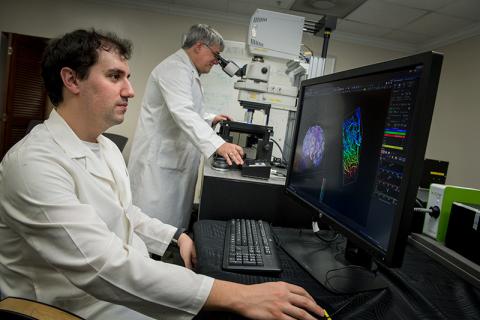Tulane University joins regional biomedical technology accelerator hub
Tulane University has joined a consortium of 24 academic institutions to create a new hub to accelerate the commercialization of life sciences research and biomedical innovations.
The National Institute of General Medical Sciences, a division of the National Institutes of Health, awarded a $3.5 million, three-year grant to the universities of Kentucky, Louisville and West Virginia and healthcare technology accelerator XLerateHealth LLC to lead the initiative.
The newly created Southeast Xlerator Network will boost biomedical technologies in the NIH’s Southeast Institution Development Award (IDeA) region, which includes Louisiana, Kentucky, Arkansas, Mississippi, Puerto Rico, South Carolina and West Virginia.
“The network will provide new programming, educational resources and commercialization tools to make it easier for biomedical innovators to bring cutting-edge research taking place in labs across the region into the marketplace where it has the potential to improve lives throughout the world,” said James Zanewicz, chief business officer for Tulane University School of Medicine and Louisiana site lead for the consortium.
At Tulane, the hub will complement Zanewicz’s work connecting faculty researchers with biomedical industry leaders as well as ongoing efforts by Tulane’s Office of Technology Transfer and Intellectual Property Development.
The other institutions taking part in the consortium include: Ana G. Mendez University System, Benedict College, Clemson University, Coastal Carolina University, Eastern Kentucky University, Jackson State University, LSU Health Center, Marshall University, Medical University of South Carolina, Morehead State University, Northern Kentucky University, Ponce Health Sciences University/Ponce School of Medicine, Puerto Rico Science Technology & Research Trust, Southern University, A&M College, University of Arkansas, University of Mississippi, University of Puerto Rico Medical Sciences Campus, Western Kentucky University and Winthrop University.

